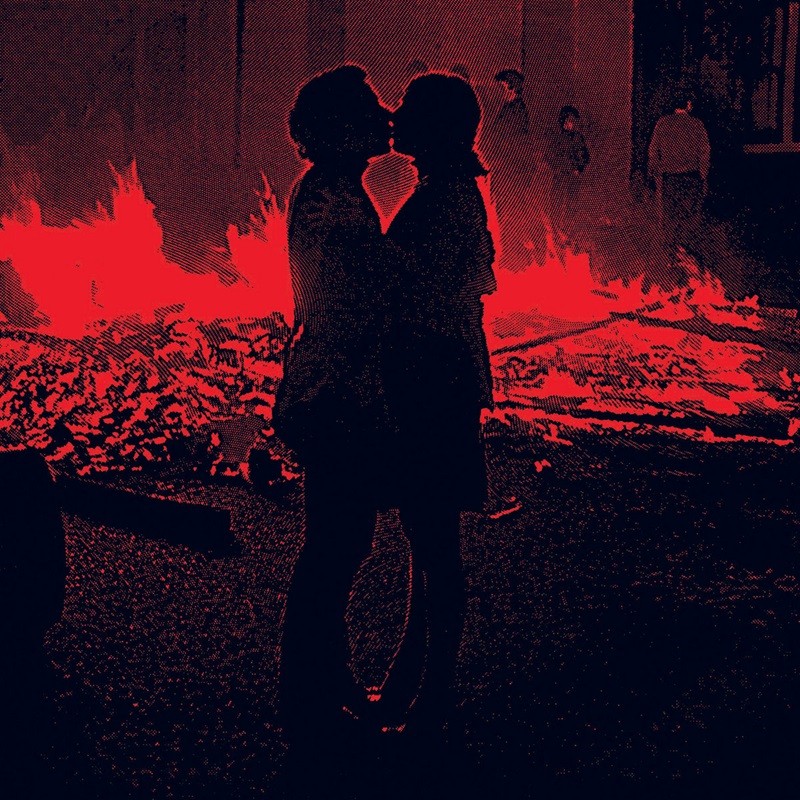
David Holmes shuns easy street on his new solo album.
It’s easy to think of David Holmes in the guise of composer, scoring movies like Ocean’s Eleven or hit TV show Killing Eve, a content man in his fifties who mixes with entertainment royalty and has the gold statuettes to prove it.
The truth however is far more complicated. Born in Belfast as the Troubles first began to escalate, the Holmes family were Catholics in a majority Protestant area and were devilishly acquainted with the sectarian Pogroms of the era when their home was pipe bombed when he was only four. DJ’ing and promoting from fifteen in a city full of soldiers, openly carried weapons and meaningless murders on an industrial scale, in 1989 he co-started a nightclub.
Sugar Sweet was no ordinary venue however: in the wake of the ecstasy-soaked arrival of acid house across the Irish sea in clubs in the rest of Britain, narcotics ensured a hedonistic crowd made up of people from either side of the peace walls coexisted happily. It was a radically human idea in a country where life for some despotic gangsters had ceased to have value according to what building they prayed in.
Holmes has come a long way since then, this his fifth solo album under his own name (more recent activity has been in association with Jade Vincent as Unloved) since 2008’s The Holy Pictures. Fifteen years on, Blind On A Galloping Horse resets his course as an artist, its meta the last decade or so of Britain’s ruinous social and political self-harm. It is, by most standards, a radical record.
Sometimes prescience and timing can be the same thing. Blind On a Galloping Horse features spoken word interludes from Afghan and Ukrainian refugees who are now residents in Belfast, alongside a Palestinian ambulance driver. The sprawling ten-minute opener When People Are Occupied Resistance Is Justified in that context comes over like a truth arrow to the heart of global warmongering and human rights abuse, Unloved singer Raven Violet (with whom Holmes is reunited throughout) emoting, ‘I wanna breathe/I wanna fly/not rot in the dirty dust’.
As well as saluting those terrorised by conflict, Necessary Genius picks up the mantle of offering love and respect to the, ‘dreamers, misfits, radicals, outcasts’, that have passed in the last few years – figures such as Terry Hall, Sinéad O’Connor and Ennio Morricone.
Whilst in this vein the producer then summons up the spirit of one of the greatest mavericks of all in Sugar Sweet regular Andrew Weatherall via the post-punk mining I Laugh Myself To Sleep, emphasising a bond between the two which has transcended the absence of one.
Perhaps some of the album’s evident frustration is that every step forward seems to be followed by two back; released originally eighteen months ago, It’s Over, If We Run Out of Love – with its fizzing lo-fi electro groove and mournful refrain, ‘I remember back when we were young/they said the people’s day would surely come’, – is a mournful signpost of hope unfulfilled.
Eventually though all roads lead back to the fulfilment of losing it all in the face of everything. Here the Goldfrapp-esque disco of Stop Apologising offers up only two fingers to those who sit in moral judgement whilst exhibiting none of their own: trading in oblivion is sometimes the only answer that makes sense in the private lake of the self.
Blind On A Galloping Horse is no comfortable soundtrack to a comfortable life David Holmes could’ve chosen. With deep roots in the adrenaline of risk and clannish ecstasy of the underground, ghosts and nobody’s fools both walk its sweet-and-bitter road towards an uncertain future.




